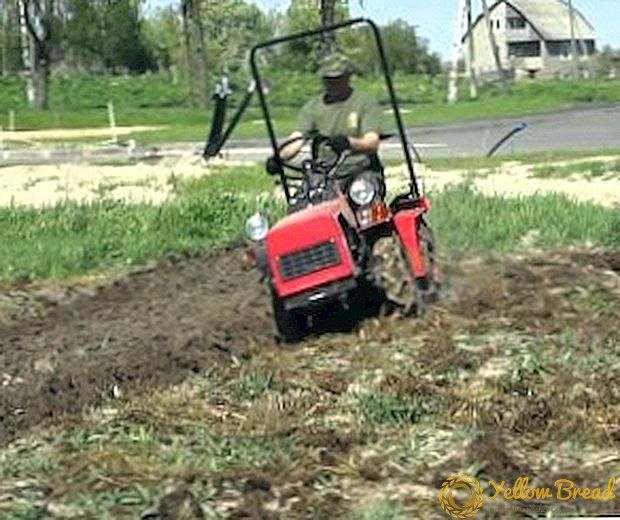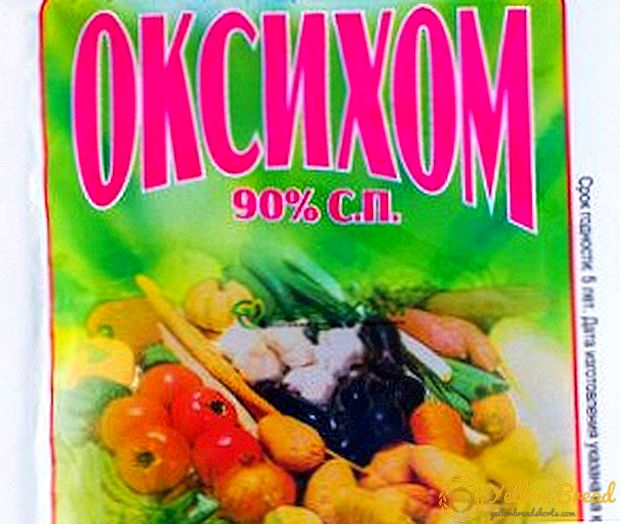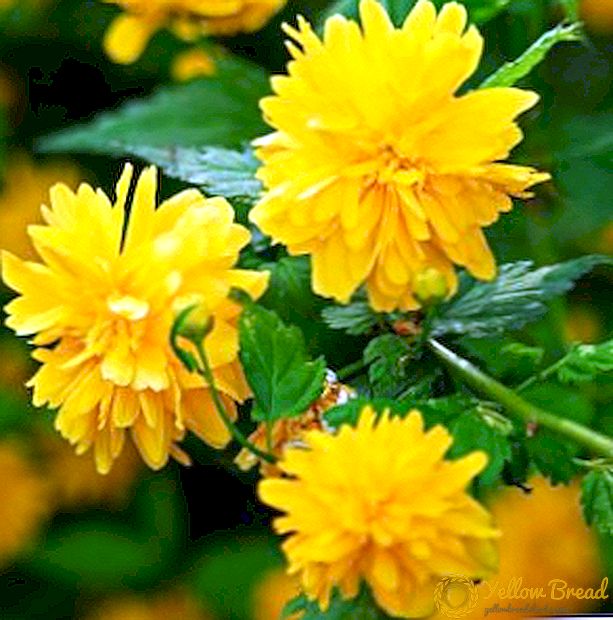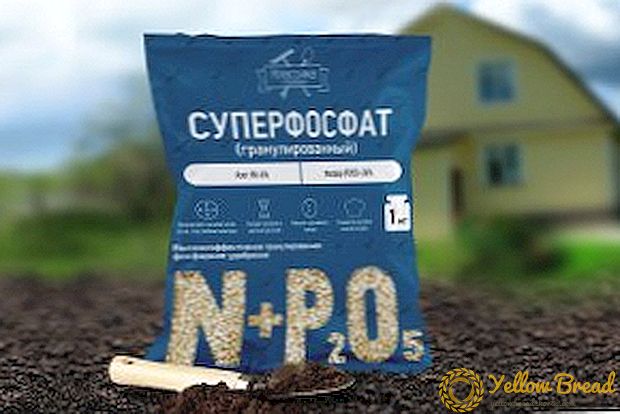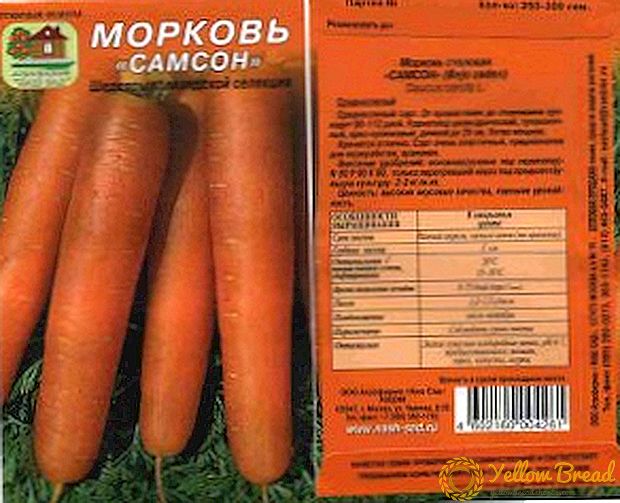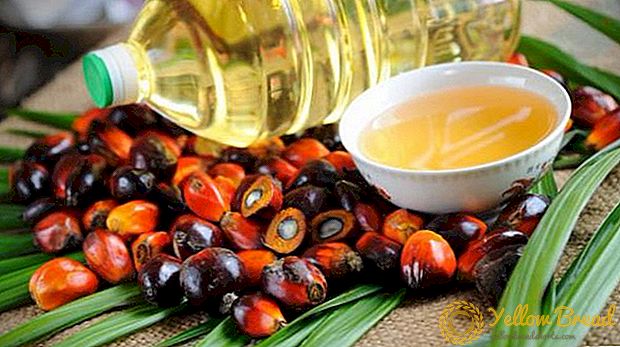
Potato Bryansk Delicacy - a promising and interesting variety that will surely appeal to lovers of early harvest potatoes.
He is little sensitive to diseases, quickly and in a friendly knotted tubers. Harvest well stored, suitable for sale or industrial processing.
A detailed description of the variety, its main characteristics, cultivation features and photos can be found further in the article.
Potato Bryansk delicacy: description of the variety
| Grade name | Bryansk delicacy |
| general characteristics | table grade, tolerates transportation and mechanical damage |
| Gestation period | 70-80 days |
| Starch content | 15-18% |
| Mass of commercial tubers | 70-120 gr |
| The number of tubers in the bush | 12-15 |
| Yield | 160-300 c / ha |
| Consumer quality | excellent taste, high in amino acids, beta-carotene and protein |
| Recumbency | 94% |
| Skin color | yellow |
| Pulp color | light yellow |
| Preferred growing regions | Central |
| Disease resistance | resistant to potato cancer, nematode, banded mosaic, leaf curl |
| Features of growing | standard agricultural technology |
| Originator | All-Russian Research Institute of Potato Farm named after A.G. Lorha (Russia) |
Specifications
Potatoes variety Bryansk Delicacy refers to the mid-early table. Productivity is good, depending on the climate and nutritional value of the soil from 1 hectare, you can collect from 160 to 300 centners of selected potatoes.
Maximum recorded yield - 300 quintals per hectare. Harvested potatoes are stored well, for a long time without losing commercial quality. Long distance transportation possible.
Bushes are medium in size, rather sprawling, with abundant green mass. The leaves are large, dark green, with weakly wavy edges and clearly traced veins.
Corollas are very small, collected from white, small, rapidly falling flowers. Berry formation is low. The root system is powerful, 12-15 selected tubers appear under each bush.
And in the table below you can see what the yield and the percentage of marketable tubers are in other potato varieties:
| Grade name | Productivity (c / ha) | Tuber marketability (%) |
| Lemongrass | 195-320 | 96 |
| Melody | 180-640 | 95 |
| Margarita | 300-400 | 96 |
| Alladin | 450-500 | 94 |
| Courage | 160-430 | 91 |
| Beauty | 400-450 | 94 |
| Grenada | 600 | 97 |
| The hostess | 180-380 | 95 |
Planting care is easy. Potatoes prefers light fertile soils with a lot of sand or black soil.
Tubers need to be planted after the soil is fully heated, frequent hilling is recommended, moderate watering is recommended. The variety responds well to top dressing, alternation of mineral complexes with organic is possible. How and when to apply fertilizer, as well as how to do it when planting, read the individual articles of our site.
Sort resistant to many dangerous diseases: potato cancer, golden cyst nematode, leaf curling virus or banded mosaic, rhizoctoniosis. And unfavorable conditions possible infection with late blight of the leaves, tubers from late blight rarely suffer.
Potatoes It has a pleasant rich flavor. He does not boil soft and does not darken when cutting, maintaining a neat shape and a pleasant yellowish tint.
Tubers are universal, they can be boiled, fried, baked, stuffed, used to make mashed potatoes or slices of fries. Potatoes are good for industrial processing as well, they make excellent crispy chips.It all depends on the amount of starch in tubers, which this variety contains from 15 to 18%.
The amount of starch in potato tubers of other varieties:
| Grade name | Starch |
| Lady claire | 12-16% |
| Innovator | up to 15% |
| Labella | 13-15% |
| Bellarosa | 12-16% |
| Riviera | 12-16% |
| Karatop | 11-15% |
| Veneta | 13-15% |
| Gala | 14-16% |
| Zhukovsky early | 10-12% |
| Lorch | 15-20% |
Origin
Variety Bryansk Delicacy bred by Russian breeders. It is brought in the State registry of the Russian Federation in 2002. Zoned for the Central region, but can be grown in any areas with a temperate or warm climate.
Possible planting on industrial fields, breeding in farms and private farms. Potatoes are suitable for sale or industrial processing. Root vegetables are well kept, seed material is not prone to degeneration.
Read more about the storage of potatoes in the winter, in boxes, peeled, in the refrigerator, as well as the timing in the detailed materials of our site.
A photo
The photo shows potato Bryansk delicacy:





Advantages and disadvantages
Among main advantages varieties:
- excellent taste of tubers;
- early amicable ripening;
- Harvested well stored;
- good commodity qualities of root crops;
- not damaged when digging;
- high yield;
- the possibility of industrial processing;
- resistance to major diseases.
Deficiencies in the variety is not fixed.
Features of growing
Before planting, the tubers must be pickled, dried, processed by growth promoters. Germination in light or in wet sawdust is recommended.
Before planting, the soil is loosened, plant residues are selected from it, which can become a breeding ground for bacteria and larvae of pests. Old humus, wood ash or a small amount of superphosphate is introduced into the soil.
Shrubs are located at a distance of 30-35 cm from each other, inter-row widths of 60-70 cm are required. To maintain the normal level of humidity they can mumble grass. This will save planting from weeds and help fight pests.
Undermining the first tubers can be already 45 days after the emergence of shoots. In regions with warm, long summers, it is possible to plant potatoes twice.
At the same time, the tubers collected at the beginning of the growing season are distinguished by lower keeping quality, it is desirable to use them in food immediately after digging.
Harvested potatoes should be thoroughly dried right on the field or under a canopy. The potatoes intended for sale can be packed up immediately after drying.
We bring to your attention a series of useful materials about other methods of growing potatoes: under straw, in bags, in barrels, Dutch technology.
Diseases and pests
 Variety enough resistant to major diseases of solanaceous. It is rarely affected by potato cancer, scab, golden cyst nematode, and rhizoctoniosis.
Variety enough resistant to major diseases of solanaceous. It is rarely affected by potato cancer, scab, golden cyst nematode, and rhizoctoniosis.
Early ripening saves the tubers from late blight, but this disease can affect the leaves of plants. In case of an epidemic, planting can be sprayed with copper-containing preparations.
For the prevention of tubers pickled, and the soil before planting shed disinfectant compounds. From the black legs young bushes will save the introduction of wood ash.
Read also useful information about Alternaria, Verticilliasis, Fusarium wilt.
Young fresh tops attract insect pests. Most often, plants are affected by Colorado beetles, aphids, spider mites. Timely weeding and mulching between rows with straw or mowed grass will help to get rid of parasites.
 Fighting the Colorado potato beetle and its larvae very often becomes a real problem for gardeners.
Fighting the Colorado potato beetle and its larvae very often becomes a real problem for gardeners.We bring to your attention a series of materials about folk remedies and chemical preparations that can cope with the problem.
The wireworms (larvae of the click beetle) cause very great damage to the plantings. From him saves the right crop rotation. Every 2-3 years plots for planting potatoes need to be changed. The vacated areas are seeded with oilseed radish or phacelia.
The potato variety Bryansk Delicacy fully justifies its name. Tubers are very tasty and beautiful, they are suitable for industrial processing and preparation of various dishes. Seed material does not degenerate, it can be collected for subsequent planting for many years.
We also invite you to get acquainted with other varieties that have a variety of ripening terms:
| Superstand | Early maturing | Medium early |
| Farmer | Bellarosa | Innovator |
| Minerva | Timo | Pretty boy |
| Kiranda | Spring | American |
| Karatop | Arosa | Crown |
| Juvel | Impala | Manifesto |
| Meteor | Zorachka | Elizabeth |
| Zhukovsky early | Colette | Vega | Riviera | Kamensky | Tiras |

